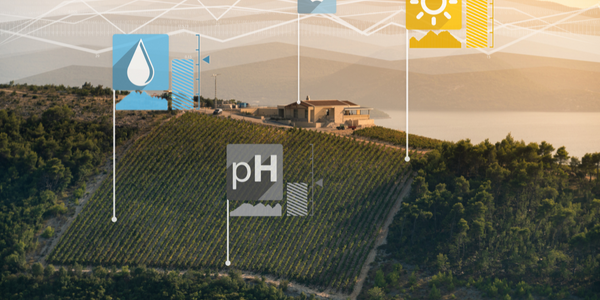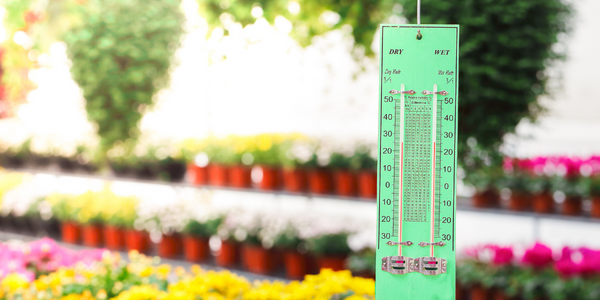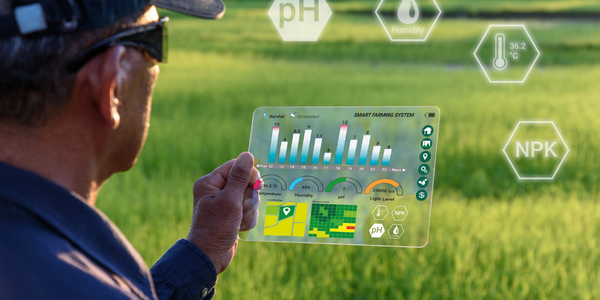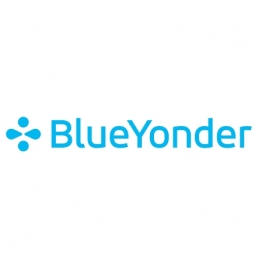Customer Company Size
Large Corporate
Country
- Brazil
Product
- Blue Yonder’s warehouse management
- Blue Yonder’s transportation management
Tech Stack
- Digital warehouse systems
- Digital transportation systems
- Robotic process automation (RPA)
Implementation Scale
- Enterprise-wide Deployment
Impact Metrics
- Cost Savings
- Environmental Impact Reduction
- Productivity Improvements
Technology Category
- Functional Applications - Fleet Management Systems (FMS)
- Functional Applications - Warehouse Management Systems (WMS)
Applicable Industries
- Agriculture
Applicable Functions
- Logistics & Transportation
- Warehouse & Inventory Management
Use Cases
- Fleet Management
- Inventory Management
- Supply Chain Visibility
Services
- System Integration
- Training
About The Customer
Bayer Crop Science is a global company with annual revenues exceeding $23 billion US. The company delivers agricultural products in more than 70 countries and operates more than 350 facilities. Bayer Crop Science is part of Bayer, a global enterprise with core competencies in the life science fields of health care and nutrition. Bayer Crop Science aims to contribute to feeding the world by reducing agriculture's environmental impact, making optimal use of natural resources, and helping to ensure secure and reliable food supplies.
The Challenge
Bayer Crop Science, a company with annual revenues exceeding $23 billion US, delivers agricultural products in more than 70 countries. The company operates more than 350 facilities and was challenged to adopt consistent technology solutions, analytical tools, and best practices across all these locations. Logistics managers at Bayer needed standardized decision-making practices and shared values that would enable them to act in the best financial interests of the company. The challenge was to implement a single logistics platform with shared data, metrics, workflows, and best practices across all locations, supporting the company’s goal for global standardization.
The Solution
Bayer embarked on an ambitious global rollout of Blue Yonder’s warehouse management and transportation management capabilities. The implementation, scheduled for completion in 2025, is already delivering impressive results. Ernst & Young is a partner in the worldwide implementation. Blue Yonder’s transportation management solution has helped Bayer improve asset utilization by 7% by maximizing truck capacity and eliminating 1.4 million miles traveled in Brazil alone. By digitizing the carrier management process, Bayer has significantly reduced its freight costs while improving on-time delivery rates. Blue Yonder capabilities help Bayer conduct online bidding events, automate the bid analysis and carrier award process, and model complex transportation scenarios as conditions change. The entire transportation management process has been improved. In the warehouse, Blue Yonder solutions help monitor inventory and track its movements in real time. Similarly, in the transportation function, real-time track-and-trace capabilities from Blue Yonder help Bayer make on-the-fly logistics decisions during the crucial last mile. A future goal is to bring all the Bayer Crop Science businesses into a single platform for transportation, using the robotic process automation (RPA) capability in Blue Yonder’s transportation management solution to redefine non-touch planning, and move from decentralized planning to a centralized approach.
Operational Impact
Quantitative Benefit

Case Study missing?
Start adding your own!
Register with your work email and create a new case study profile for your business.
Related Case Studies.

Case Study
Intelligent Farming with ThingWorx Analytics
Z Farms was facing three challenges: costly irrigation systems with water as a limited resource, narrow optimal ranges of soil moisture for growth with difficult maintenance and farm operators could not simply turn on irrigation systems like a faucet.

Case Study
Greenhouse Intelligent Monitoring and Control Solution
Farming Orchids is the most successful form of precision farming in Taiwan, and also the most exported flower. Orchids need a specific temperature and humidity conditions to grow and bloom, and its flowering time may not be in line with market demands, so the price collapses when there is overproduction. Therefore, some farmers began to import automated greenhouse control systems for breeding and forcing, which not only improves quality, but also effectively controls the production period and yield to ensure revenue. In 2012, an orchid farmer built a Forcing Greenhouse of about 200 pings (approximately 661 Square Meters) in Tainan, Taiwan. The system integrator adopted Advantech’s APAX-5000 series programmable automation controllers to build the control platform, coupled with Advantech WebAccess HMI/SCADA software, to achieve cloud monitoring. The staff of the orchid field can monitor important data anytime via smart phone, iPad, and other handheld devices, and control the growth and flowering conditions. System requirements: In the past, most environmental control systems of orchid greenhouses in Taiwan used PLCs (Programmable Logic Controller) with poorscalability and control, and could not be connected to the Internet formonitoring from the cloud. For advanced database analysis and networking capability, the PC platform must be adopted. Therefore, PAC Systems (Programmable Automation Controller) with both PLC programming capabilities andPC functions is a better choice.The environmental control of the Orchid greenhouse switches on and off devices like fan, shade net, cooling/heat pump, liquid flow control, water-cooling wall etc. It is controlled by a control panel of electric controllers, and is driven by a motor, to adjust the greenhouse temperature, humidity, and other environmental conditions to the set parameters.

Case Study
Precision beekeeping with wireless temperature monitoring
Honeybees are insects of large economic value and provide a vital service to agriculture by pollinating a variety of crops. In addition, bees provide us with valuable products such as honey, beeswax, propolis, bee venom, etc. Monitoring of honeybee colony health, population, productivity, and environmental conditions affecting the colony health have always been exceedingly difficult tasks in apiculture. Research has shown that even small deviations (by more than 2°C) from the optimal temperatures have a significant influence on the development of the brood and the health of adult bees.

Case Study
Enabling Internet of Things Innovation in Agriculture
DigiBale, wanted to apply technology know-how and IP from implementations successfully to more agriculture sectors including cotton, forestry, sugarcane and cattle. However, farmers and growers still have worries about the connected technology.









